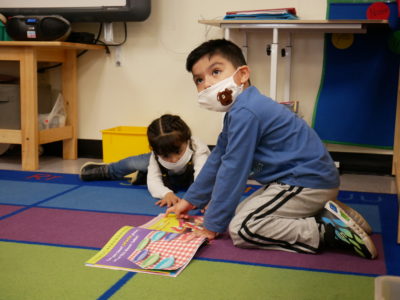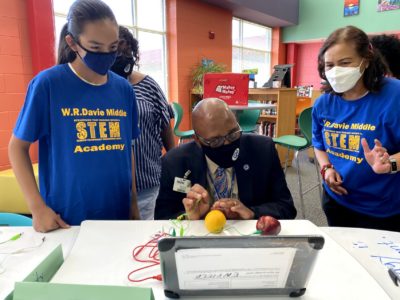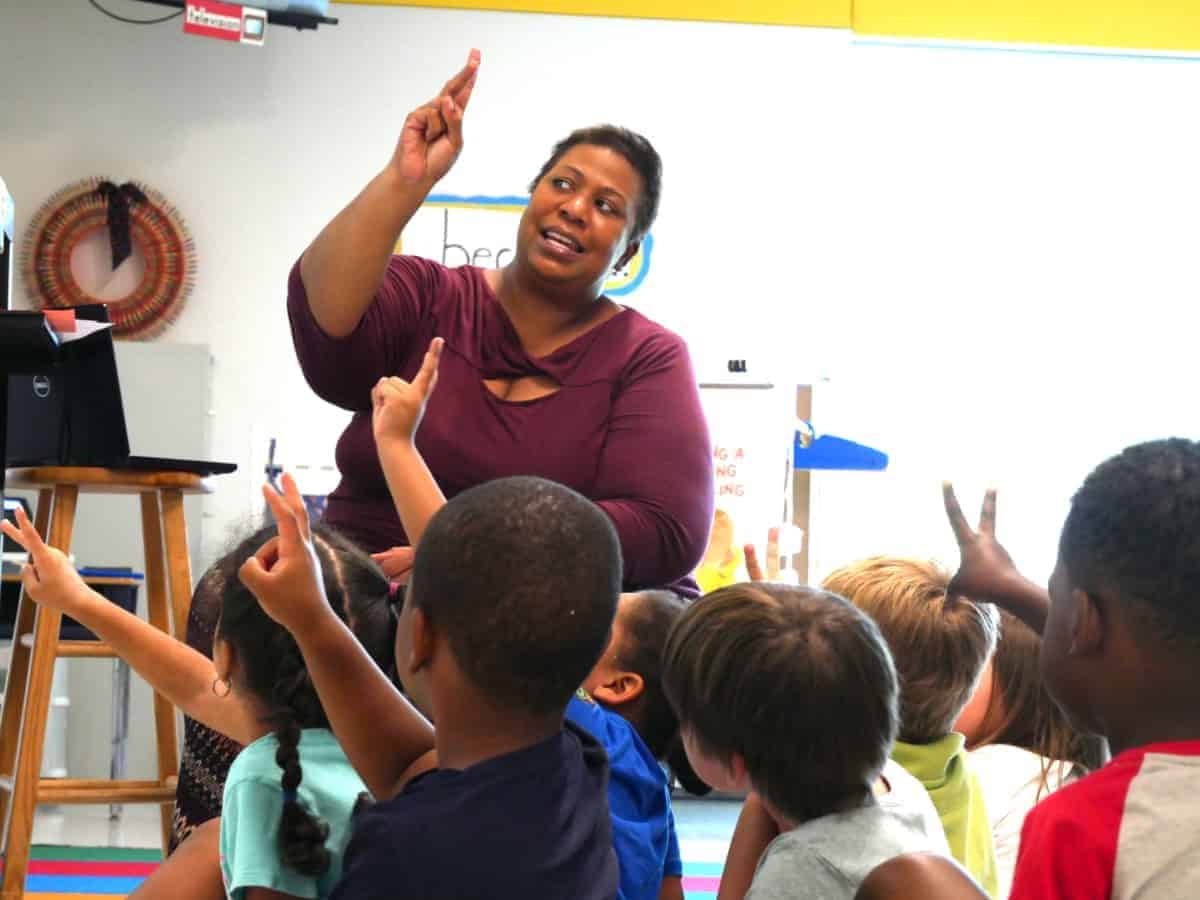
Starting kindergarten is always an exciting and memorable time, but throw in a pandemic, social distancing, and mask requirements and things can get … well, less exciting. You might be asking yourself if your child is even ready for kindergarten. Because most of us have spent the last 18 months in a nebulous time warp, your rising kindergartener was just learning to crawl last week, right?
Actually, what does “being ready for kindergarten” even mean? Ultimately, your goal is to send your child to school as prepared as possible for those first few days, but what exactly can you do? Here are four things you can do that can make a positive impact.
Practice routines and basic skills
Kindergarten teacher Necolby Burt stresses the importance of practicing basic skills with students at home: “Things like knowing how to open a snack container, zip their jacket, and wash their hands are really important in kindergarten.”
Teachers are always prepared to help students, but the more students that need a snack opened, the longer it takes to help everyone. Making sure your child has the ability to take care of their basic needs without assistance will increase independence and build confidence.
Learning and following a routine is another essential part of kindergarten. “If you don’t already have established morning and night routines, now is the time to start them,” says kindergarten teacher Tomika Freeman.
The sooner children can get used to what it feels like to follow a routine, the better. Start with considering how your child will choose what to wear each morning. Some children enjoy being part of the decision and taking ownership of this routine is perfectly age appropriate. Practicing routines will help ease anxieties on the first day of school.
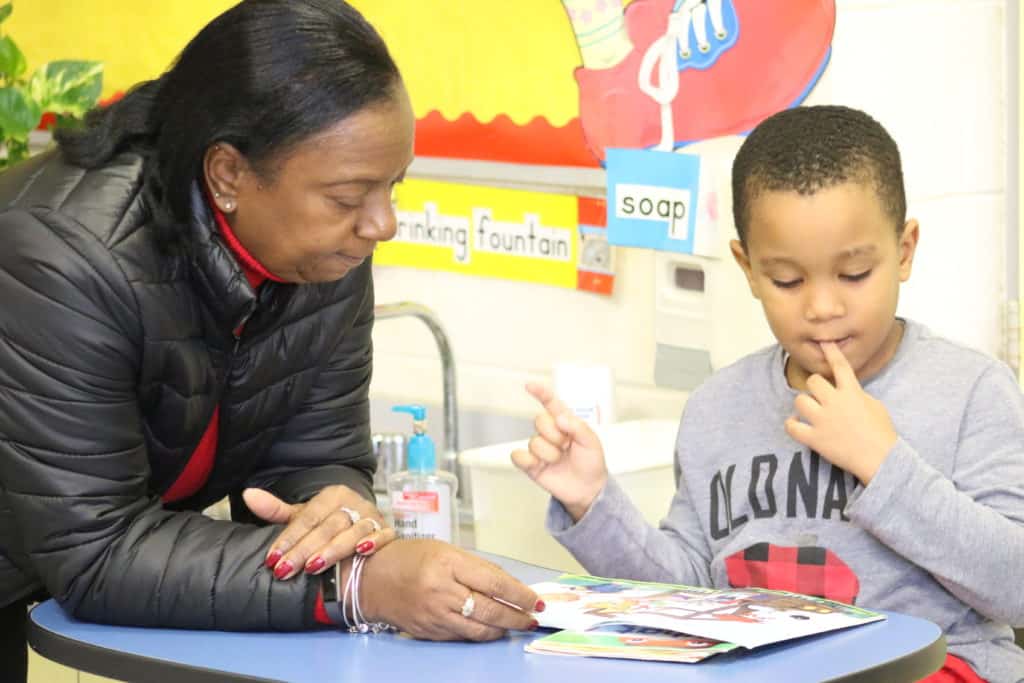
Use language that supports the transition
Expect big feelings from yourself and your child. Then, prepare yourself to accept them! During a time of such transition, it can be easy to let worries get the best of you. Be careful how you model preparing for this big change. Practice using language that supports dealing with change in a healthy way. Here are some examples:
- “Starting kindergarten will be an exciting change for both of us!”
- “I wonder what you will learn on the first day?”
- “Do you have any questions?”
- “Let’s practice how we will say goodbye to each other on the first day of school.”
- “It’s exciting to think about the new friends you will make.”
- “Trying new things takes a lot of courage.”
Familiarize yourself with school protocols
Take time to learn what protocols your child’s school is implementing to ensure COVID-19 safety. You can usually find this information online, but if not, contact your school and ask.
Many schools are requiring masks for all students, which can present a new challenge, especially to kindergarteners who may not be used to wearing a mask all day. Start practicing this now! Involve your child in picking out well-fitted masks and remind them of the importance of mask-wearing in being a responsible citizen and doing their part to protect their community.
Keep in mind that some schools have plans in place in the event that students have to quarantine. My school, for instance, will move to virtual learning in the event of an outbreak. If that is the case in your school, take a moment to plan for what that might look like for your family. It could happen with a day’s notice and planning ahead now can save you from a lot of chaos later.
Remember, your child’s teacher will be your best resource for important information. You can do your part in maintaining the home-school connection by keeping up with any communication coming from the teacher, such as signing daily folders or reading weekly newsletters. Many kindergarten teachers utilize an app that you can download to stay up-to-date, send and receive messages, or see student work!
Be as upfront and honest as possible about what to expect
The more informed and comfortable with kindergarten your child is the better! Consider visiting your local library to check out these great books:
- “Curious George Goes to School” by Margret and H.A. Rey
- “The Night Before Kindergarten” by Natasha Wing
- “First Day Jitters” by Julie Danneberg
- “I Love School!” by Philemon Sturges and Shari Halpern
- “Kindergarten, Here I Come!” by D. J. Steinberg
(Note: If going to a library is not possible, many of these titles are available as read-alouds on YouTube!)
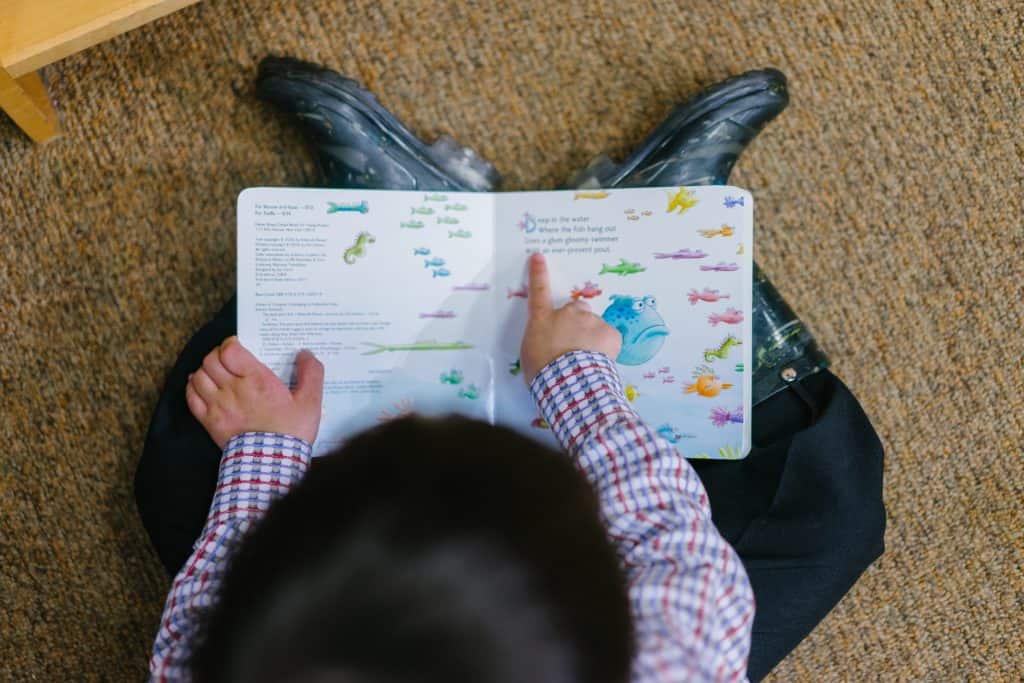
Pay attention to what your child is interested in when reading these books and use those observations to guide a discussion during and after reading. Children are able to see themselves in book characters going through a similar experience, which can allow them to better express their own feelings and thoughts. The more you know about how they are feeling, the easier it will be for you to support them.
At the end of the day, don’t forget to pat yourself on the back. You cared enough about your child’s education to seek out an article with advice on how to support them. This past year and a half has been unrelenting in many ways — and you made it. Relish in the fact that your child is about to experience one of the most centering and grounding parts of their community: their school. On behalf of teachers everywhere, thank you for working with us to make education a positive experience. We couldn’t do it without you!



